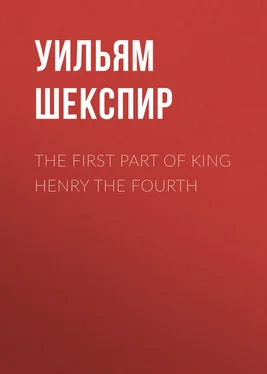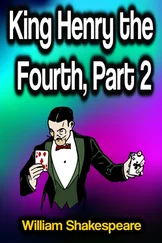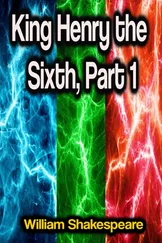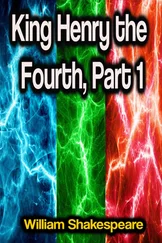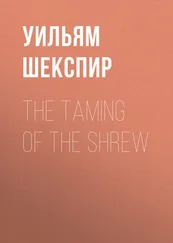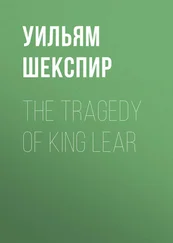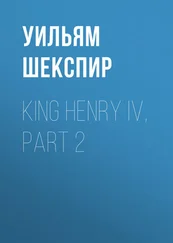Уильям Шекспир - The First Part of King Henry the Fourth
Здесь есть возможность читать онлайн «Уильям Шекспир - The First Part of King Henry the Fourth» — ознакомительный отрывок электронной книги совершенно бесплатно, а после прочтения отрывка купить полную версию. В некоторых случаях можно слушать аудио, скачать через торрент в формате fb2 и присутствует краткое содержание. Жанр: Европейская старинная литература, Драматургия, foreign_dramaturgy, на английском языке. Описание произведения, (предисловие) а так же отзывы посетителей доступны на портале библиотеки ЛибКат.
- Название:The First Part of King Henry the Fourth
- Автор:
- Жанр:
- Год:неизвестен
- ISBN:нет данных
- Рейтинг книги:3 / 5. Голосов: 1
-
Избранное:Добавить в избранное
- Отзывы:
-
Ваша оценка:
- 60
- 1
- 2
- 3
- 4
- 5
The First Part of King Henry the Fourth: краткое содержание, описание и аннотация
Предлагаем к чтению аннотацию, описание, краткое содержание или предисловие (зависит от того, что написал сам автор книги «The First Part of King Henry the Fourth»). Если вы не нашли необходимую информацию о книге — напишите в комментариях, мы постараемся отыскать её.
The First Part of King Henry the Fourth — читать онлайн ознакомительный отрывок
Ниже представлен текст книги, разбитый по страницам. Система сохранения места последней прочитанной страницы, позволяет с удобством читать онлайн бесплатно книгу «The First Part of King Henry the Fourth», без необходимости каждый раз заново искать на чём Вы остановились. Поставьте закладку, и сможете в любой момент перейти на страницу, на которой закончили чтение.
Интервал:
Закладка:
William Shakespeare
The First Part of King Henry the Fourth
King Henry the Fourth.
Henry, Prince of Wales, son to the King.
Prince John of Lancaster, son to the King.
Earl of Westmoreland.
Sir Walter Blunt.
Thomas Percy, Earl of Worcester.
Henry Percy, Earl of Northumberland.
Henry Percy, surnamed Hotspur, his son.
Edmund Mortimer, Earl of March.
Richard Scroop, Archbishop of York.
Archibald, Earl of Douglas.
Owen Glendower.
Sir Richard Vernon.
Sir John Falstaff.
Sir Michael, a friend to the Archbishop of York.
Poins.
Gadshill
Peto.
Bardolph.
Lady Percy, wife to Hotspur, and sister to Mortimer.
Lady Mortimer, daughter to Glendower, and wife to Mortimer.
Mistress Quickly, hostess of the Boar's Head in Eastcheap.
Lords, Officers, Sheriff, Vintner, Chamberlain, Drawers, two Carriers, Travellers, and Attendants.
SCENE. – England and Wales
ACT I. Scene I. London. The Palace
Enter the King, Lord John of Lancaster, Earl of Westmoreland, [Sir Walter Blunt,] with others.
King. So shaken as we are, so wan with care,
Find we a time for frighted peace to pant
And breathe short-winded accents of new broils
To be commenc'd in stronds afar remote.
No more the thirsty entrance of this soil
Shall daub her lips with her own children's blood.
No more shall trenching war channel her fields,
Nor Bruise her flow'rets with the armed hoofs
Of hostile paces. Those opposed eyes
Which, like the meteors of a troubled heaven,
All of one nature, of one substance bred,
Did lately meet in the intestine shock
And furious close of civil butchery,
Shall now in mutual well-beseeming ranks
March all one way and be no more oppos'd
Against acquaintance, kindred, and allies.
The edge of war, like an ill-sheathed knife,
No more shall cut his master. Therefore, friends,
As far as to the sepulchre of Christ-
Whose soldier now, under whose blessed cross
We are impressed and engag'd to fight-
Forthwith a power of English shall we levy,
Whose arms were moulded in their mother's womb
To chase these pagans in those holy fields
Over whose acres walk'd those blessed feet
Which fourteen hundred years ago were nail'd
For our advantage on the bitter cross.
But this our purpose now is twelvemonth old,
And bootless 'tis to tell you we will go.
Therefore we meet not now. Then let me hear
Of you, my gentle cousin Westmoreland,
What yesternight our Council did decree
In forwarding this dear expedience.
West. My liege, this haste was hot in question
And many limits of the charge set down
But yesternight; when all athwart there came
A post from Wales, loaden with heavy news;
Whose worst was that the noble Mortimer,
Leading the men of Herefordshire to fight
Against the irregular and wild Glendower,
Was by the rude hands of that Welshman taken,
A thousand of his people butchered;
Upon whose dead corpse there was such misuse,
Such beastly shameless transformation,
By those Welshwomen done as may not be
Without much shame retold or spoken of.
King. It seems then that the tidings of this broil
Brake off our business for the Holy Land.
West. This, match'd with other, did, my gracious lord;
For more uneven and unwelcome news
Came from the North, and thus it did import:
On Holy-rood Day the gallant Hotspur there,
Young Harry Percy, and brave Archibald,
That ever-valiant and approved Scot,
At Holmedon met,
Where they did spend a sad and bloody hour;
As by discharge of their artillery
And shape of likelihood the news was told;
For he that brought them, in the very heat
And pride of their contention did take horse,
Uncertain of the issue any way.
King. Here is a dear, a true-industrious friend,
Sir Walter Blunt, new lighted from his horse,
Stain'd with the variation of each soil
Betwixt that Holmedon and this seat of ours,
And he hath brought us smooth and welcome news.
The Earl of Douglas is discomfited;
Ten thousand bold Scots, two-and-twenty knights,
Balk'd in their own blood did Sir Walter see
On Holmedon's plains. Of prisoners, Hotspur took
Mordake Earl of Fife and eldest son
To beaten Douglas, and the Earl of Athol,
Of Murray, Angus, and Menteith.
And is not this an honourable spoil?
A gallant prize? Ha, cousin, is it not?
West. In faith,
It is a conquest for a prince to boast of.
King. Yea, there thou mak'st me sad, and mak'st me sin
In envy that my Lord Northumberland
Should be the father to so blest a son-
A son who is the theme of honour's tongue,
Amongst a grove the very straightest plant;
Who is sweet Fortune's minion and her pride;
Whilst I, by looking on the praise of him,
See riot and dishonour stain the brow
Of my young Harry. O that it could be prov'd
That some night-tripping fairy had exchang'd
In cradle clothes our children where they lay,
And call'd mine Percy, his Plantagenet!
Then would I have his Harry, and he mine.
But let him from my thoughts. What think you, coz,
Of this young Percy's pride? The prisoners
Which he in this adventure hath surpris'd
To his own use he keeps, and sends me word
I shall have none but Mordake Earl of Fife.
West. This is his uncle's teaching, this Worcester,
Malevolent to you In all aspects,
Which makes him prune himself and bristle up
The crest of youth against your dignity.
King. But I have sent for him to answer this;
And for this cause awhile we must neglect
Our holy purpose to Jerusalem.
Cousin, on Wednesday next our council we
Will hold at Windsor. So inform the lords;
But come yourself with speed to us again;
For more is to be said and to be done
Than out of anger can be uttered.
West. I will my liege. Exeunt.
Scene II. London. An apartment of the Prince's
Enter Prince of Wales and Sir John Falstaff.
Fal. Now, Hal, what time of day is it, lad? Prince. Thou art so fat-witted with drinking of old sack, and unbuttoning thee after supper, and sleeping upon benches after noon, that thou hast forgotten to demand that truly which thou wouldest truly know. What a devil hast thou to do with the time of the day, Unless hours were cups of sack, and minutes capons, and clocks the tongues of bawds, and dials the signs of leaping houses, and the blessed sun himself a fair hot wench in flame-coloured taffeta, I see no reason why thou shouldst be so superfluous to demand the time of the day. Fal. Indeed you come near me now, Hal; for we that take purses go by the moon And the seven stars, and not by Phoebus, he, that wand'ring knight so fair. And I prithee, sweet wag, when thou art king, as, God save thy Grace-Majesty I should say, for grace thou wilt have none- Prince. What, none? Fal. No, by my troth; not so much as will serve to be prologue to an egg and butter. Prince. Well, how then? Come, roundly, roundly. Fal. Marry, then, sweet wag, when thou art king, let not us that are squires of the night's body be called thieves of the day's beauty. Let us be Diana's Foresters, Gentlemen of the Shade, Minions of the Moon; and let men say we be men of good government, being governed as the sea is, by our noble and chaste mistress the moon, under whose countenance we steal. Prince. Thou sayest well, and it holds well too; for the fortune of us that are the moon's men doth ebb and flow like the sea, being governed, as the sea is, by the moon. As, for proof now: a purse of gold most resolutely snatch'd on Monday night and most dissolutely spent on Tuesday morning; got with swearing 'Lay by,' and spent with crying 'Bring in'; now ill as low an ebb as the foot of the ladder, and by-and-by in as high a flow as the ridge of the gallows.
Читать дальшеИнтервал:
Закладка:
Похожие книги на «The First Part of King Henry the Fourth»
Представляем Вашему вниманию похожие книги на «The First Part of King Henry the Fourth» списком для выбора. Мы отобрали схожую по названию и смыслу литературу в надежде предоставить читателям больше вариантов отыскать новые, интересные, ещё непрочитанные произведения.
Обсуждение, отзывы о книге «The First Part of King Henry the Fourth» и просто собственные мнения читателей. Оставьте ваши комментарии, напишите, что Вы думаете о произведении, его смысле или главных героях. Укажите что конкретно понравилось, а что нет, и почему Вы так считаете.
